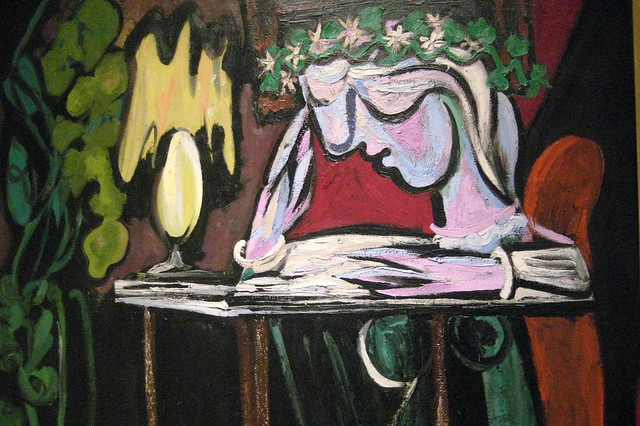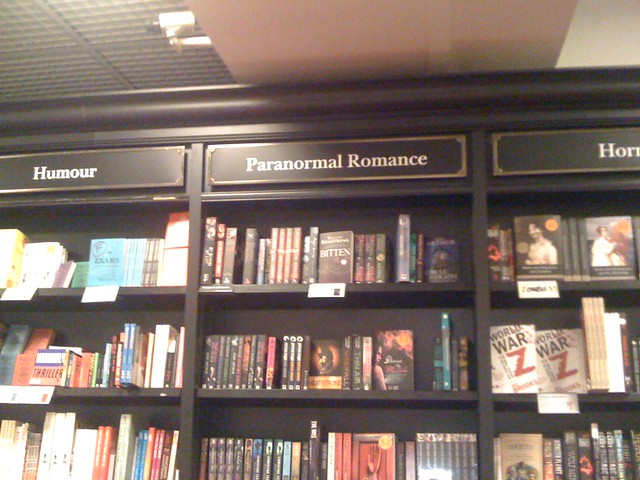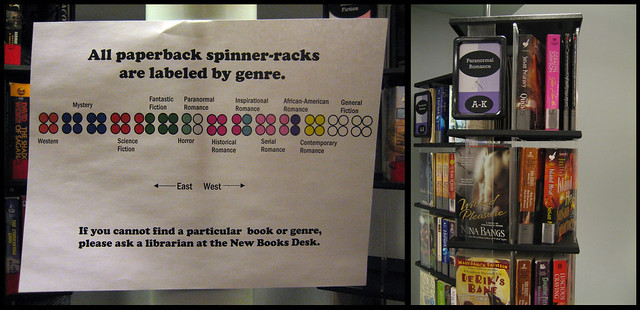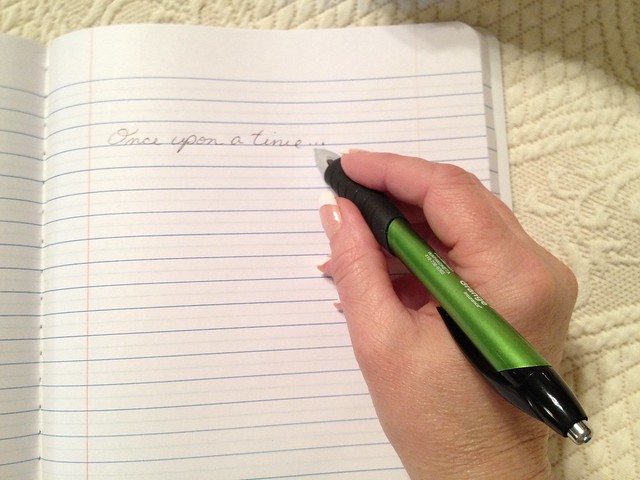On Monday before last, while searching for a hard copy of a science fiction novel I plan to revise, I found a hard copy of another long story, a dystopia with intended moral ambiguity and a boarding school of horrors. Immediately I put it away and hid it in the drawer, along with the poems and short stories that had earned me A's in middle and high school. The shame colored me all evening, to think that I had written something so laughably terrible and dark.
Last Tuesday, coincidentally, AvannaK on Tumblr posted a few old Naruto fanfics that she had written when she was younger, with apologies for characterization and shipping. I thought they were well written and had less obsessive shipping than a few young adult novels I had read over the weekend, and told her so. So did a few followers, but she still responded with modesty:
Jumping7Salon:Awwwwwww I want to give 20 year old Avanna a hug!!
AvannaK: or a smack in the face with a dictionary
Image source: https://farm3.staticflickr.com/2332/2223106956_af70c2bdf1_z_d.jpg
Writers always have that interesting contradiction: the egotistic ones, like me, know that we can write well, and we submit works when we feel they are ready to be published, but we also have some works that can never reach the proper light of day, and when they do, they are like the rogue dandelions that the gardeners could not pull out. I don't think I can ever read the bad fanfiction that I wrote when I was a teenager, but a few of them are still floating around online; half a dozen more disappeared when I switched computer hard drives. No, I will not tell you that pseudonym I used.
We writers have one thing in common when we have success, big or small: self-deprecation. Our old works embarrass us because we know what we did wrong then, and that we can do better now. AvannaK's concern involved her not knowing how to characterize Sakura in Naruto fanfiction, since it seems that when we fanfiction writers started out we tended to make our girl characters obsessed with the guys or vice versa, giving no thoughts to canon. With that said, she still finds the right words and phrasing to paint vivid scenes.
When submitting I try to hold onto my ego and belief that "THIS story is good!" and I ride on a high that it's going well, that "THIS story" will be the one to earn professional rates. The few times that I get an acceptance on the first try, like with "The Opera Singer," it brings a great sense of vindication especially when those stories come from a dark place. The times when a story that I work hard on gets nothing? I feel like a wave has flipped me over, and that the story isn't good enough. That it has lost my edge.
Some of these stories, I have retired because I run out of places to send them. I don't delete them like I used to, but I feel ready to move on to other stories, that feel right, and get back to the troubled ones when I know how to fix them. Probably when I have more energy I'll deal with them properly, and understand what to change. My endings are still fairly weak, but I'm getting better at them.
Image source: https://farm6.staticflickr.com/5096/5459331064_b824d401d5_z_d.jpg
In the meantime? I'll watch the embarrassing dandelions bloom in my garden of stories. They deserve a small place, for having helped me start. And I'll keep praising Avanna's works, old and new, because her dandelions are undiluted power.
Last Tuesday, coincidentally, AvannaK on Tumblr posted a few old Naruto fanfics that she had written when she was younger, with apologies for characterization and shipping. I thought they were well written and had less obsessive shipping than a few young adult novels I had read over the weekend, and told her so. So did a few followers, but she still responded with modesty:
Jumping7Salon:Awwwwwww I want to give 20 year old Avanna a hug!!
AvannaK: or a smack in the face with a dictionary
Image source: https://farm3.staticflickr.com/2332/2223106956_af70c2bdf1_z_d.jpg
Writers always have that interesting contradiction: the egotistic ones, like me, know that we can write well, and we submit works when we feel they are ready to be published, but we also have some works that can never reach the proper light of day, and when they do, they are like the rogue dandelions that the gardeners could not pull out. I don't think I can ever read the bad fanfiction that I wrote when I was a teenager, but a few of them are still floating around online; half a dozen more disappeared when I switched computer hard drives. No, I will not tell you that pseudonym I used.
We writers have one thing in common when we have success, big or small: self-deprecation. Our old works embarrass us because we know what we did wrong then, and that we can do better now. AvannaK's concern involved her not knowing how to characterize Sakura in Naruto fanfiction, since it seems that when we fanfiction writers started out we tended to make our girl characters obsessed with the guys or vice versa, giving no thoughts to canon. With that said, she still finds the right words and phrasing to paint vivid scenes.
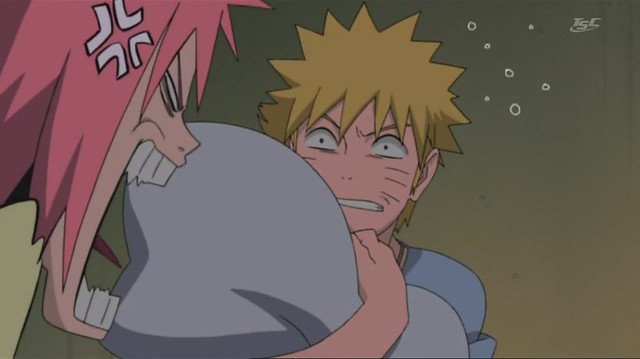 |
| For context, Sakura takes a bit to warm up to Naruto in canon. |
Image source: https://farm3.staticflickr.com/2253/2434786922_bce339e47a_z_d.jpg?zz=1
Some of these stories, I have retired because I run out of places to send them. I don't delete them like I used to, but I feel ready to move on to other stories, that feel right, and get back to the troubled ones when I know how to fix them. Probably when I have more energy I'll deal with them properly, and understand what to change. My endings are still fairly weak, but I'm getting better at them.
Image source: https://farm6.staticflickr.com/5096/5459331064_b824d401d5_z_d.jpg
In the meantime? I'll watch the embarrassing dandelions bloom in my garden of stories. They deserve a small place, for having helped me start. And I'll keep praising Avanna's works, old and new, because her dandelions are undiluted power.
